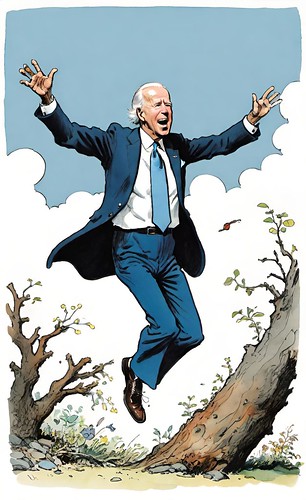Outgoing President Joe Biden granted 39 pardons and commuted the sentences of roughly 1,500 federal offenders serving the remainder of their sentences on home confinement today.
The orders came under intense pressure from a coalition of civil rights, criminal justice, and religious groups urging Biden to use his clemency power to grant relief to several groups of federal offenders, such as death row inmates and nonviolent drug offenders. Biden recently issued a broad pardon to his son, Hunter, leading many groups to publicly complain that he wasn’t extending mercy to others.
Specifically, Biden granted pardons to 39 current and former federal inmates who, the White House says, received excessively long sentences for nonviolent crimes and have since demonstrated successful rehabilitation. He also commuted the sentences of roughly 1,500 federal offenders who were released to home confinement during the COVID-19 pandemic and have been serving the remainder of their sentences at home since then.
“America was built on the promise of possibility and second chances,” Biden said in a White House press release. “As President, I have the great privilege of extending mercy to people who have demonstrated remorse and rehabilitation, restoring opportunity for Americans to participate in daily life and contribute to their communities, and taking steps to remove sentencing disparities for non-violent offenders, especially those convicted of drug offenses.”
Federal offenders who were released to home confinement during COVID-19 have been caught in a partisan tug-of-war for the past several years, despite their extraordinarily low recidivism rate . In the final days of Donald Trump’s administration, the Justice Department released a memo finding that once the government ended its COVID-19 emergency declaration, all former inmates with remaining sentences would have to report back to prison.
Criminal justice advocacy groups began pressing the Biden administration to reverse that decision, arguing that the program had been an unqualified success and that it would be bizarre and cruel to send back people who had thrived on the outside. The White House initially declined to do so , instead announcing a clemency initiative that would have targeted only nonviolent drug offenders, leaving thousands of others, such as white-collar offenders, to return to prison regardless of their conduct. The Justice Department eventually reversed course and issued a new memo finding that the Bureau of Prisons had the discretion to leave them under house arrest for the remainder of their sentences.
Last year, Senate Republicans mounted an unsuccessful effort to overturn that Justice Department rule, and criminal justice advocates feared the incoming Trump administration would follow through on its original intent to reincarcerate those on home confinement.
In his statement today, Biden said those whose terms of home confinement he commuted “have successfully reintegrated into their families and communities and have shown that they deserve a second chance.”
The criminal justice advocacy group FAMM, which sent a letter to the White House last month urging Biden to flex his pardon powers, applauded today’s news.
“Many of the recipients have been home for more than four years and have made the most of their timereconnecting with family, continuing their education, and making positive contributions to their communities,” FAMM president Shaneva McReynolds said in a press release. “With these commutations, their second chances begin in earnest!”
Many of today’s pardon recipients are also already out of prison, such as Shannan Rae Faulkner, 56. According to the White House, after serving her sentence for a nonviolent drug offense, Faulkner now works as a counselor and recovery coach with female trauma victims and volunteers with organizations dedicated to preventing sexual assault and domestic violence.
Missing from the pardons and commutations, though, were any of the 40 federal death row inmates. The Biden White House has been under particular pressure to clear federal death row by commuting inmates’ sentences to life in prison. Trump’s first administration carried out 13 executions over a six-month period before he left office the first time, and criminal justice advocates have little doubt executions will resume again. Biden campaigned in 2020 on ending the federal death penalty.
Today’s White House statement said Biden will take “more steps in the weeks ahead” and “continue reviewing clemency petitions to advance equal justice under the law, promote public safety, support rehabilitation and reentry, and provide meaningful second chances.”
“We know that ours is not a lost effort, and there is hope that he will show mercy to those facing execution,” Abraham Bonowitz, cofounder of Death Penalty Action, said in a press release. “Hope, and prayer, without also taking action is folly, and therefore we must continue to act.”
